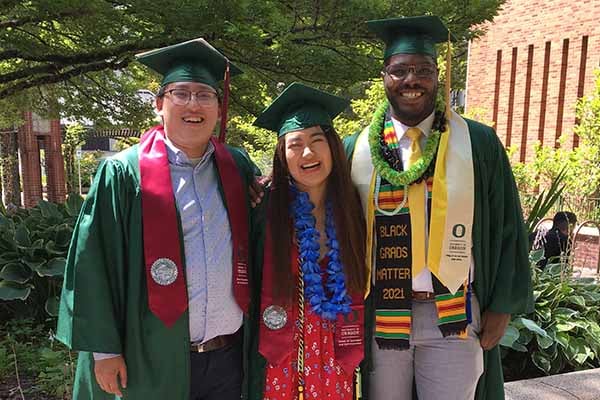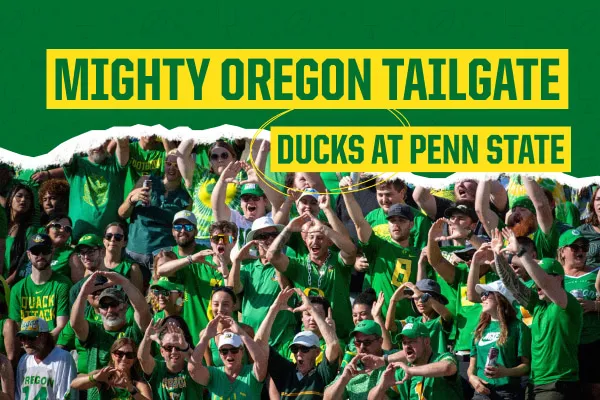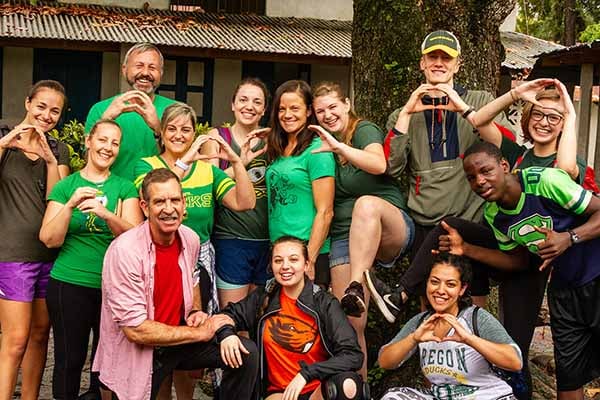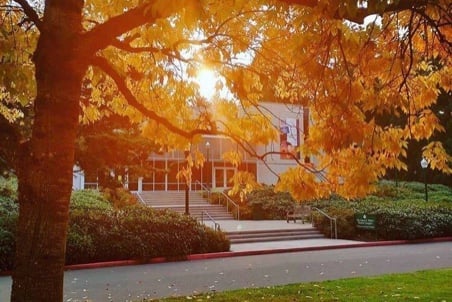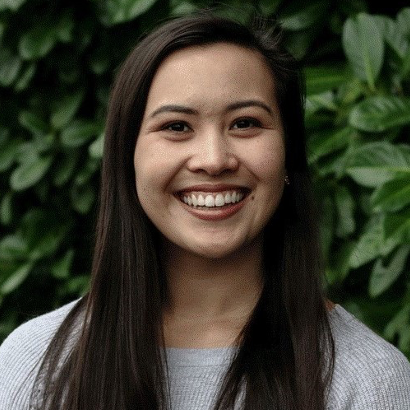
Julia Wong, BS ’18 (business administration), MNM ’22 (nonprofit management)
Associate Director of Events at Fanconi Anemia Research Fund; UOAA Board of Directors
Part of the Daily Emerald “Ducks Take Flight” feature series
Written by Lauren Leone, UO student columnist
What drew you to study business administration at the UO and pursue work in nonprofits after graduating?
I think finding the nonprofit sector was a really big turning point for me. As a business undergrad, I really enjoyed the operations and practical side of it. That’s kind of how my brain works—it’s very black and white and so business was always something I gravitated toward. But I always felt compelled to make a bigger impact, and the nonprofit sector does both, where I can use the skills that I found in business administration, but in a purposeful and meaningful way where I’m doing something bigger than myself. That’s something I knew I wanted in my career for it to be more than just a job and an eight to five, but a way that I can use my skills to help others in whatever way that I could.
Another reason that I chose the nonprofit sector is to try a lot of new things. I get pretty bored if I just do the same thing over and over again, and typically nonprofits are a lot more collaborative, and they’re less siloed. In nonprofits, you’re always trying new things to help wherever you can. Typically they’re under-resourced and understaffed, and so it’s wherever you can fit in and help is kind of what you end up doing. And so you get to expand your knowledge, try new things out, play and explore, and see what kind of career options could come from it.
What skills or key takeaways did you gain from your time at the UO that you now implement in your role?
I think one of the biggest takeaways that I gained at the UO was the mentality to say yes to new opportunities and challenges that come no matter how scary they might seem initially. You never know where it could lead or what doors it could open. So many of the decisions I made in college have directly impacted where I am and what I’m doing today. I’m really fortunate that I have a support system at the university, different mentors, and friends to keep pushing me and making me vulnerable to say yes to things that might be scary, which ended up being huge moments. It changed my career path and my personal life.
On the more practical side, I worked while I was in school, and it gave me a lot of skills that I use daily. I was an event coordinator for a university department and now I’m the associate director of events. Learning to run meetings, using different software, and talking on the phone all came from working a job while I was in school. And really a lot of that comes back to the mentors, my bosses, and my supervisors, who spent a lot of their time teaching me how to be professional, how to answer emails, and teaching me through the mistakes I made along the way.
What are your tips for effective networking and how can students build a professional network early on?
I was honestly probably not the best networker, but I think one of the biggest things that I’ve learned since then was really listening to a conversation. It might sound silly and trivial, but by approaching it with curiosity, even if it’s not your passion, and being able to show that you’re listening, you’re asking good follow-up questions, and you’re interested in what the person you’re talking to does, they will be more willing to help you.
The other tip I have is one of the biggest pieces of advice that I got while at the UO—the answer is always no if you don’t ask. So don’t be afraid to shoot your shot and ask for what you want or need because the worst they’re going to say is no, which is the same place that you’re going to get to if you don’t ask. It can be scary and vulnerable but it’s something that I try and remind myself of, even at this stage of my career, that you have to shoot your shot because they might not know that’s what you want.
Another tip is to really lean into your work. Be professional, and ask your mentors to take you to different meetings to expand your role. Being the least experienced person in the room is okay, and learning from that can be scary and intimidating, but you learn so much from that. Ask for support when you need it, and put yourself in those scary positions because you’ll grow so much from it. And then the last thing I think to build your professional network is to offer assistance. When you offer someone assistance and help someone out, it will be reciprocated, and they’re more willing to pass your name on and help you out when you need it.
What are your tips for navigating your first post-grad job search?
I think the biggest part is matching the words that are in the job description with what’s in your cover letter or your resume. A lot of time when jobs are getting hundreds of applicants, they’ll do keyword searches. So if the job description says marketing, but in your cover letter you say communications, it might not flag that you have experience in marketing. So that was a big piece of advice that I got from an academic or career advisor.
What advice would you give to students of color and first-generation students who are trying to navigate higher education?
A lot of it comes back to those pieces of advice I gave earlier, which is to be vulnerable, be scared, and put yourself in positions that feel uncomfortable because good things come of it. I know that’s a lot harder when you don’t look like everybody else in the room, or you don’t feel like you’re supposed to be there. Trust me, imposter syndrome is a real thing, especially for people of color. But actions prove louder than words and if you can show and prove yourself, you will go far and people will advocate for you.
What is your favorite UO memory?
I studied abroad for six weeks in Italy. I can’t pick one single moment from those six weeks but that’s an example of a time when I knew nobody going on the trip. I moved to Italy for six weeks and I didn’t know the language, which could have been a scary situation. But some of my best friends who I’m still extremely close to today and have networked with and leaned on a lot are people that I met on the abroad trip. And so I loved it. It made me who I am today and gave me some of my best friends in the world and I’m just very grateful for that.
What are your tips for attaining a healthy work-life balance?
That’s an extremely important question. My advice is to find a company culture that has a work-life balance. I am very fortunate that the nonprofit sector has a lot of work-life balance, and that’s probably because you don’t get paid as much for your work. You work a lot, but you have a healthy work-life balance as well. I think it’s really important to set that standard from the beginning. If you start and you’re responding to emails on weekends, and you’re responding to emails at 9 p.m., you set that precedent. So being able to create your boundaries from the beginning and saying, no, it’s after 5 p.m., I’m not going to respond to that email until tomorrow. It was really important because if you start responding to emails, people are going to expect that immediately. I keep my work emails on my phone, but I don’t let it notify me. I can check if I want but I don’t want the notifications. I don’t want to know after hours what's going on. And that helps reduce my anxiety about not responding to emails right away as well.



